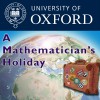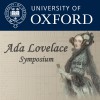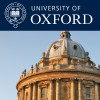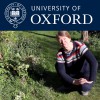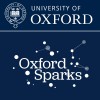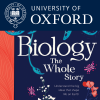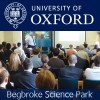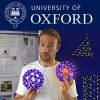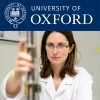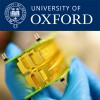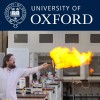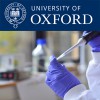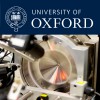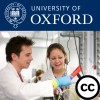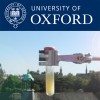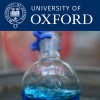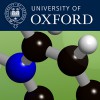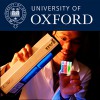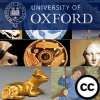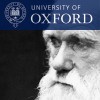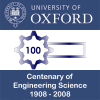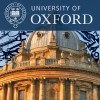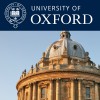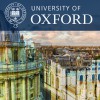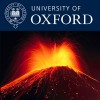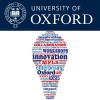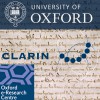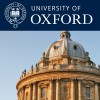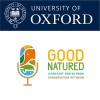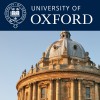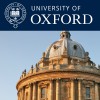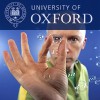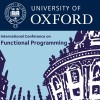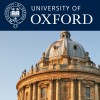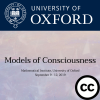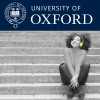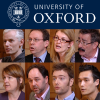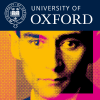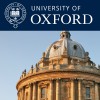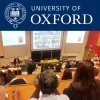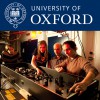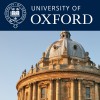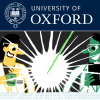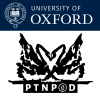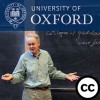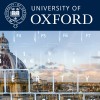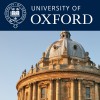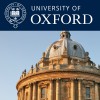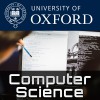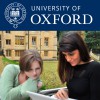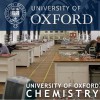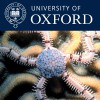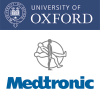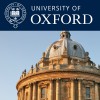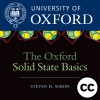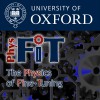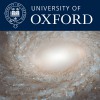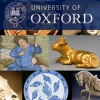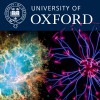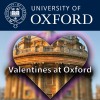Mathematical, Physical and Life Sciences (MPLS)

Relevant Links
The Mathematical, Physical and Life Sciences (MPLS) Division is one of the four academic divisions of the University of Oxford. We have over 6,000 students and research staff, and generate over half of our funding from external research grants.
The MPLS Division's 10 departments and 3 interdisciplinary units span the full spectrum of the mathematical, computational, physical, engineering and life sciences, and undertake both fundamental research and cutting-edge applied work. Our research addresses major societal and technological challenges and is increasingly interdisciplinary in nature. We collaborate closely with colleagues in Oxford across the medical sciences, social sciences and humanities.
Today's scientific research not only crosses traditional subject boundaries, but also transcends national boundaries: MPLS scientists collaborate with researchers from around the world, and play leading roles in many international projects.
Series associated with Mathematical, Physical and Life Sciences (MPLS)
| # | Episode Title | Description | People | Date | |
|---|---|---|---|---|---|
| 983 | Oxford Mathematics 3rd Year Student Lecture - Mathematical Models of Financial Derivatives | Our latest student lecture features the first lecture in the third year course on Mathematical Models of Financial Derivatives from Sam Cohen where we hear that the role of derivatives is not to make money but to avoid being exploited. | Sam Cohen | 02 Mar 2020 | |
| 982 | Oxford Mathematics 1st Year Student Lecture - Linear Algebra II | Our latest student lecture features the first lecture in the second term introductory course on Linear Algebra from leading Oxford Mathematician James Maynard. | James Maynard | 02 Mar 2020 | |
| 981 | Oxford Mathematics Public Lecture: Ian Griffiths - Cheerios, iPhones and Dysons: going backwards in time with fluid mechanics | How do you make a star-shaped Cheerio? How do they make the glass on your smartphone screen so flat? And how can you make a vacuum filter that removes the most dust before it blocks? | Ian Griffiths | 26 Feb 2020 | |
| 980 | Enterprising Women: Lunch and Learn - Tara Sabre Collier | Tara Sabre Collier shares insights into her work as a Global Strategist and Social Entrepreneur | Tara Sabre Collier | 25 Feb 2020 | |
| 979 | A Problem for Lambert | Lecture at 65th Birthday Symposium for Lambert Meertens, 22nd January 2010 | Richard Bird | 24 Feb 2020 | |
| 978 | An Introduction to the Theory of Lists | Lectures at Utrecht University, 16th and 17th December 1986. | Richard Bird | 24 Feb 2020 | |
| 977 | Oxford Mathematics Public Lectures - Carlo Rovelli - Spin networks: the quantum structure of spacetime from Penrose's intuition to Loop Quantum Gravity | Carlo Rovelli delivers The Roger Penrose Lecture on the Quantum structure of Spacetime. | Carlo Rovelli | 16 Jan 2020 | |
| 976 | IceCube: Opening a New Window on the Universe from the South Pole | Particle Physics Christmas Lecture, hosted by Prof. Daniela Bortoletto, Head of Particle Physics and senior members of the department with guest speaker, Professor Francis Halzen. | Daniela Bortoletto, Francis Halzen | 20 Dec 2019 | |
| 975 | Oxford Mathematics Christmas Public Lecture: Chris Budd - Why does Rudolf have a shiny nose? | From the unfairness of voting on TV shows to how Santa gets down so many narrow chimneys. Chris Budd take a mathematical look at the traditions of Christmas. | Chris Budd | 19 Dec 2019 | |
| 974 | Strachey Lecture: Can one Define Intelligence as a Computational Phenomenon? | Can we build on our understanding of supervised learning to define broader aspects of the intelligence phenomenon. Strachey Lecture delivered by Leslie Valiant. | Leslie Valiant | 11 Dec 2019 | |
| 973 | Jon Chapman - Waves and resonance: from musical instruments to vacuum cleaners, via metamaterials and invisibility cloaks | Via guitars, clarinets and a musical saw to the noise reduction in a vaccum cleaner, Jon Chapman explains the role of waves in the sounds we hear and don't hear. | Jon Chapman | 02 Dec 2019 | |
| 972 | Oxford Mathematics 2nd Year Student Lecture - Quantum Theory | Our latest student lecture is the first in the Quantum Theory course for second year students. Fernando Alday reflects on the breakdown of the deterministic world and describes some of the experiments that defined the new Quantum Reality. | Fernando Alday | 02 Dec 2019 | |
| 971 | Oxford Mathematics London Public Lecture: Timothy Gowers - Productive generalization: one reason we will never run out of interesting mathematical questions | In our Oxford Mathematics London Public Lecture Tim Gowers uses the principle of generalization to show how mathematics progresses in its relentless pursuit of problems. | Tim Gowers, Hannah Fry | 27 Nov 2019 | |
| 970 | Oxford Mathematics Newcastle Public Lecture: Vicky Neale - in Maths | Mathematics has no place for emotion, its practitioners are positively unemotional. True? Well, no. In fact 10 out of 10 untrue. Mathematics and mathematicians are also on the emotional rollercoaster. Vicky Neale is one of them. | Vicky Neale | 27 Nov 2019 | |
| 969 | The First Image of a Black Hole | Professor Heino Falcke of Radboud University, Nijmegen delivers the 19th Hintze Lecture - reviewing the latest results of the Event Horizon Telescope, its scientific implications and future expansions of the array | Heino Falcke | 19 Nov 2019 | |
| 968 | Creative Commons | Strachey Lecture - The Windmills of Your Mind: Reflections of a Career in Computer Science Research | Dame Wendy Hall reflects on her career in computer science research - from intelligent tutoring systems, through multimedia and open hypermedia, to the semantic web, web science, and social machines. | Wendy Hall | 19 Nov 2019 |
| 967 | Oxford Mathematics 2nd Year Student Lecture - Differential Equations 1 | We continue with our series of Student Lectures with this first lecture in the 2nd year Course on Differential Equations. | Philip Maini | 04 Nov 2019 | |
| 966 | Oxford Mathematics 1st year Student Lecture - Introductory Calculus | In our latest student lecture we would like to give you a taste of the Oxford Mathematics Student experience as it begins in its very first week. | Dan Ciubotaru | 04 Nov 2019 | |
| 965 | Oxford Mathematics Public Lectures: David Sumpter - Soccermatics: could a Premier League team one day be managed by a mathematician? | What do you need to win the Premier League? Money? Sure. Good players? Yup. A great manager? It helps. Mathematics? Really? 100%. | David Sumpter | 04 Nov 2019 | |
| 964 | Cosmic acceleration revealed by Type la supernovae? | In this talk Subir Sarkar will explain how deflagration supernovae have been used to infer that the Hubble expansion rate is accelerating, and critically assess whether the acceleration is real and due to `dark energy’. | Subir Sarkar | 01 Nov 2019 | |
| 963 | Supernova Explosions and their Role in the Universe | In this talk, Philipp Podsiadlowski will explain how this energy (sometimes) creates a visible fireball, before going on to explain the role of supernovae in the production of the heaviest elements in the periodic table. | Philipp Podsiadlowski | 01 Nov 2019 | |
| 962 | What makes stars go bang? | In this talk, James Binney will outline the physics that leads to prodigeous release of energy in core-collapse and deflagration supernovae. | James Binney | 01 Nov 2019 | |
| 961 | Creative Commons | John Barnden - Consciousness, metacausation and metadynamism | One in a series of talks from the 2019 Models of Consciousness conference. | John Barnden | 13 Oct 2019 |
| 960 | Creative Commons | Pedro Mediano - Moving beyond integration and differentiation in measures of neural dynamics | One in a series of talks from the 2019 Models of Consciousness conference. | Pedro Mediano | 13 Oct 2019 |
| 959 | Creative Commons | Inês Hipólito - Generative models of the mind: neural connections and cognitive integration | One in a series of talks from the 2019 Models of Consciousness conference. | Inês Hipólito | 13 Oct 2019 |
| 958 | Creative Commons | Gustav Bernroider - Neural sense relations and consciousness: a diagrammatic approach | One in a series of talks from the 2019 Models of Consciousness conference. | Gustav Bernroider | 13 Oct 2019 |
| 957 | Creative Commons | Marc Ebner - A communication-based model of consciousness | One in a series of talks from the 2019 Models of Consciousness conference. | Marc Ebner | 13 Oct 2019 |
| 956 | Creative Commons | Diana Stanciu - An ESR model of consciousness | One in a series of talks from the 2019 Models of Consciousness conference. | Diana Stanciu | 13 Oct 2019 |
| 955 | Creative Commons | Aïda Elamrani - Inputs, outputs, and meta-models | One in a series of talks from the 2019 Models of Consciousness conference. | Aïda Elamrani | 13 Oct 2019 |
| 954 | Creative Commons | Chetan Prakash - Structure Invention by Conscious Agents | One in a series of talks from the 2019 Models of Consciousness conference. | Chetan Prakash | 13 Oct 2019 |
| 953 | Creative Commons | Quanlong Wang - Modelling consciousness divisions in ZW-calculus | One in a series of talks from the 2019 Models of Consciousness conference. | Quanlong Wang | 13 Oct 2019 |
| 952 | Creative Commons | Pierre Baudot - Information cohomology and probabilistic topos for consciousness modeling: from elementary perception to machine learning | One in a series of talks from the 2019 Models of Consciousness conference. | Pierre Baudot | 13 Oct 2019 |
| 951 | Creative Commons | Paul Baird - A model for perceptual states | One in a series of talks from the 2019 Models of Consciousness conference. | Paul Baird | 13 Oct 2019 |
| 950 | Creative Commons | Mauro D’Ariano - Awareness: an operational theoretical approach | One in a series of talks from the 2019 Models of Consciousness conference. | Mauro D’Ariano | 13 Oct 2019 |
| 949 | Creative Commons | Anita Mehta - Chasing memories | One in a series of talks from the 2019 Models of Consciousness conference. | Anita Mehta | 13 Oct 2019 |
| 948 | Creative Commons | Ramón Guevara Erra - Statistical mechanics of consciousness: maximization of information content of neuronal networks is associated with conscious awareness | One in a series of talks from the 2019 Models of Consciousness conference. | Ramón Guevara Erra | 13 Oct 2019 |
| 947 | Creative Commons | Michael Silberstein - Quantum mechanics and the consistency of conscious experience | One in a series of talks from the 2019 Models of Consciousness conference. | Michael Silberstein | 13 Oct 2019 |
| 946 | Creative Commons | Yakov Kremnitzer - Quantum collapse models and awareness | One in a series of talks from the 2019 Models of Consciousness conference. | Yakov Kremnitzer | 13 Oct 2019 |
| 945 | Creative Commons | Adrian Kent - Searching for Physical Models of the Evolution of Consciousness | One in a series of talks from the 2019 Models of Consciousness conference. | Adrian Kent | 13 Oct 2019 |
| 944 | Creative Commons | Ian Durham - Toward a formal model of free will | One in a series of talks from the 2019 Models of Consciousness conference. | Ian Durham | 13 Oct 2019 |
| 943 | Creative Commons | Peter Lloyd - Automata-theoretic approach to modelling consciousness within mental monism | One in a series of talks from the 2019 Models of Consciousness conference. | Peter Lloyd | 13 Oct 2019 |
| 942 | Creative Commons | Tim Palmer - Creativity and Consciousness: A Consequence of the Brain’s Extraordinary Energy Efficiency? | One in a series of talks from the 2019 Models of Consciousness conference. | Tim Palmer | 13 Oct 2019 |
| 941 | Creative Commons | Jonathan Mason - Expected Float Entropy Minimisation: A Relationship Content Theory of Consciousness | One in a series of talks from the 2019 Models of Consciousness conference. | Jonathan Mason | 13 Oct 2019 |
| 940 | Creative Commons | Aaron Sloman - Why current AI and neuroscience fail to replicate or explain ancient forms of spatial reasoning and mathematical consciousness? | One in a series of talks from the 2019 Models of Consciousness conference. | Aaron Sloman | 13 Oct 2019 |
| 939 | Creative Commons | Pedro Resende - Sketches of a mathematical theory of qualia | One in a series of talks from the 2019 Models of Consciousness conference. | Pedro Resende | 13 Oct 2019 |
| 938 | Creative Commons | Peter Grindrod - Large scale simulations of information processing within the human cortex: what “inner life” occurs? | One in a series of talks from the 2019 Models of Consciousness conference. | Peter Grindrod | 13 Oct 2019 |
| 937 | Creative Commons | Camilo Miguel Signorelli - Consciousness interaction, from experiments to a multi-layer model | One in a series of talks from the 2019 Models of Consciousness conference. | Camilo Miguel Signorelli | 13 Oct 2019 |
| 936 | Creative Commons | Sean Tull - Generalised integrated information theories | One in a series of talks from the 2019 Models of Consciousness conference. | Sean Tull | 13 Oct 2019 |
| 935 | Creative Commons | Stuart Hameroff - Anesthetic action on quantum terahertz oscillations in microtubules supports the Orch OR theory of consciousness | One in a series of talks from the 2019 Models of Consciousness conference. | Stuart Hameroff | 13 Oct 2019 |
| 934 | Creative Commons | Sir Roger Penrose - AI, Consciousness, Computation, and Physical Law | One in a series of talks from the 2019 Models of Consciousness conference. | Roger Penrose | 13 Oct 2019 |
| 933 | Creative Commons | Xerxes Arsiwalla - Computing Meaning from Conceptual Structures in Integrated Information Theory | One in a series of talks from the 2019 Models of Consciousness conference. | Xerxes Arsiwalla | 13 Oct 2019 |
| 932 | Creative Commons | Adam Barrett - Integrated information theory: a perspective on `weak’ and `strong’ versions | One in a series of talks from the 2019 Models of Consciousness conference. | Adam Barrett | 13 Oct 2019 |
| 931 | Creative Commons | Johannes Kleiner - On the Mathematical Basis of Models of Consciousness | One in a series of talks from the 2019 Models of Consciousness conference. | Johannes Kleiner | 13 Oct 2019 |
| 930 | Creative Commons | The Many Universes of Quantum Materials | Professor Stephen Blundell explores the many universes of quantum materials for the 2019 Quantum Materials Public Lecture. | Stephen Blundell | 07 Oct 2019 |
| 929 | Gravitational Waves and Prospects for Multi-messenger Astronomy | Professor Barry C Barish gives a talk on the quest for the detection of gravitational waves. | Barry C. Barrish | 30 Jul 2019 | |
| 928 | Finding aliens – An update on the search for life in the Universe | Bill Diamond, President & CEO The SETI Institute gives an an update on the search for life in the Universe. Hosted by Ian Shipsey, Head of Physics. | Bill Diamond, Ian Shipsey | 30 Jul 2019 | |
| 927 | Oxford Mathematics Open Days Part 3. Applied Mathematics at Oxford | Our Open Days are intended to give an insight in to Maths at Oxford, whether you are a potential applicant or are just curious. | Dominic Vella | 10 Jul 2019 | |
| 926 | Oxford Mathematics Open Days Part 2. Pure Mathematics at Oxford | In this talk Vicky Neale gives a glimpse of the undergraduate Pure Maths courses through the lens of elliptic curves. | Vicky Neale | 10 Jul 2019 | |
| 925 | Oxford Mathematics Open Days Part 1. Introduction to Mathematics | In this talk, Admissions Guru James Munro explains how we teach, how you can apply and what your Oxford mathematical life might be like. | James Munro | 10 Jul 2019 | |
| 924 | Design and Testing of Advanced Tidal System Turbine Arrays | Richard Willden MEng PhD, Professor of Engineering Science, EPSRC Fellow, gives a mini-lecture as part of the 2019 annual Lubbock lecture event. | Richard Willden | 09 Jul 2019 | |
| 923 | Thermally Induced Lateral Buckling of Subsea Pipelines | Chris Martin BE, MA DPhil, Professorial Research Fellow, Fellow of Mansfield College, gives a mini-lecture on the 2019 Lubbock event. | Chris Martin | 09 Jul 2019 | |
| 922 | 2019 Maurice Lubbock Lecture: Engineering at the crossroads: Lessons from History and a 21st-Century Vision from Across the Channel | Where is engineering going? Revolutions in knowledge, new challenges such as those raised by the digital revolution and the environmental crisis call for innovation in engineering education and professional practice. | Sophie Mougard, Antoine Picon | 09 Jul 2019 | |
| 921 | Enterprising Women: Lunch and Learn – Dr Martine Abboud, Department of Chemistry | Dr Martine Abboud talks about her scientific journey as a first-generation graduate, how to maintain life-work balance and the various enterprise-related opportunities a science researcher can access in Oxford. | Martine Abboud | 09 Jul 2019 | |
| 920 | Enterprising Women: Lunch and Learn – Prof Angela Russell, Department of Organic Chemistry | Find out how Prof Angela Russell combines the worlds of business and research through Oxtem, a company she co-founded, and still find time for family life. | Angela Russell | 09 Jul 2019 | |
| 919 | Cherwell-Simon Memorial Lecture: The XENON Project: at the forefront of Dark Matter Direct Detection | What is the Dark Matter which makes 85% of the matter in the Universe? We have been asking this question for many decades and used a variety of experimental approaches to address it, with detectors on Earth and in space. | Elena Aprile | 08 Jul 2019 | |
| 918 | Oxford Mathematics Public Lectures: John Bush - Walking on water: from biolocomotion to quantum foundations | In this Public Lecture, which contains more technical content than our norm, John Bush presents seemingly disparate topics which are in fact united by a common theme and underlaid by a common mathematical framework. | John Bush | 28 Jun 2019 | |
| 917 | Is Dark Matter Made of Black Holes | The 2019 Halley lecture | Marc Kamionkowski | 04 Jun 2019 | |
| 916 | The Role of Gas in Galaxy Evolution | Professor Jacqueline van Gorkom delivers the 18th Hintze Lecture. | Jacqueline van Gorkom | 03 Jun 2019 | |
| 915 | Oxford Mathematics Public Lectures: Marcus du Sautoy - The Creativity Code: how AI is learning to write, paint and think | In this fascinating and provocative lecture, Marcus du Sautoy both tests our ability to distinguish between human and machine creativity, and suggests that our creativity may even benefit from that of the machines. | Marcus du Sautoy | 03 Jun 2019 | |
| 914 | Oxford Mathematics Public Lectures: Graham Farmelo - The Universe Speaks in Numbers | An old-fashioned tale of tale of romance and estrangement, of hope and despair. | Graham Farmelo | 21 May 2019 | |
| 913 | ... from collisions to the Higgs boson | To study the Higgs boson at the LHC we also need to understand how highly energetic quarks and gluons interact, among themselves and with the Higgs. | Fabrizio Caola | 16 May 2019 | |
| 912 | From protons to collisions… | We learn about the Higgs Boson and its interactions at the LHC by examining the debris produced by colliding protons head-on at unprecedented high energies. | Lucian Harland-Lang | 16 May 2019 | |
| 911 | What the Large Hadron Collider is telling us about the Higgs sector and its new interactions | Over the past two years, CERN’s Large Hadron Collider (LHC) has started to directly probe a qualitatively new class of interactions, associated with the Higgs boson. | Gavin Salam | 16 May 2019 | |
| 910 | Oxford Mathematics 1st Year Student Lecture: Analysis III - Integration | The third in our popular series of filmed student lectures takes us to Integration. This is the opening lecture in the 1st Year course. | Ben Green | 09 May 2019 | |
| 909 | Search for the Electron EDM Using Molecular Ions | 4th and final lecture in the Hinshelwood 2019 lecture series | Jung Ye | 30 Apr 2019 | |
| 908 | Quantum Matter and Atomic Clocks | 3rd lecture in the Hinshelwood 2019 series | Jun Ye | 30 Apr 2019 | |
| 907 | A Quantum Gas of Polar Molecules | 2nd lecture in the Hinshelwood 2019 series | Jun Ye | 30 Apr 2019 | |
| 906 | General introduction - Control of Light: Frequency Comb Spectroscopy from IR to UXV | 1st lecture in the Hinshelwood 2019 series | Jun Ye | 30 Apr 2019 | |
| 905 | The oldest light in the Universe | In this short stargazing talk, Luke Jew looks at the topic - The oldest light in the Universe. | Luke Jew | 05 Apr 2019 | |
| 904 | Strachey Lecture: Doing for our robots what evolution did for us | Professor Leslie Kaelbling (MIT) gives the 2019 Stachey lecture. The Strachey Lectures are generously supported by OxFORD Asset Management. | Leslie Kaelbling | 29 Mar 2019 | |
| 903 | The brief history of the Universe | Sergio Martin describes the evolution of the Universe. | Sergio Martin | 22 Mar 2019 | |
| 902 | Oxford Mathematics Public Lectures: Marc Lackenby - Knotty Problems | Knots are a familiar part of everyday life, for example tying your tie or doing up your shoe laces. They play a role in numerous physical and biological phenomena, such as the untangling of DNA when it replicates. | Marc Lackenby | 20 Mar 2019 | |
| 901 | Electron Paramagnetic Resonance - Past, Present and Future | Professor Mark Newton describes some of the key events in the discovery and development of Electron Paramagnetic Resonance (EPR). | Mark Newton | 18 Mar 2019 | |
| 900 | Creative Commons | All the dark we cannot see - the state of the art in direct searches for particle dark matter | Professor Laura Baudis, University of Zurich, discusses the nature of dark matter. | Laura Baudis | 18 Mar 2019 |
| 899 | Oxford Mathematics First Year Student Tutorial on Dynamics | The Oxford Mathematics educational experience is a journey, a journey like any other educational experience. | Ian Hewitt, Kate Adams, Farid Manzoor | 22 Feb 2019 | |
| 898 | Why the world is simple - Prof Ard Louis | The coding theorem from algorithmic information theory (AIT) - which should be much more widely taught in Physics! - suggests that many processes in nature may be highly biased towards simple outputs. | Ard Louis | 15 Feb 2019 | |
| 897 | Topology in Biology - Prof Julia Yeomans FRS | Active systems, from cells and bacteria to flocks of birds, harvest chemical energy which they use to move and to control the complex processes needed for life. | Julia Yeomans | 15 Feb 2019 | |
| 896 | Welcome from the Head of the Physics Department | Ian Shipsey delivers the welcome speech for the Saturday Mornings of Theoretical Physics. | Ian Shipsey | 15 Feb 2019 | |
| 895 | Oxford Mathematics 1st Year Undergraduate Lecture James Sparks - Dynamics | For the first time ever, Oxford Mathematics has live streamed a student lecture. It took 800 years but now you can see what it is really like. We hope you find it familiar and intriguing and challenging. | James Sparks | 15 Feb 2019 | |
| 894 | James Maynard - Prime Time: How simple questions about prime numbers affect us all | Prime Numbers are fascinating, crucial and ubiquitous. The trouble is, we don't know that much about them. James Maynard, one of the leading researchers in the field explains all (at least as far as he can). | James Maynard | 15 Feb 2019 | |
| 893 | Oxford Mathematics Public Lectures: Hooke Lecture - Michael Berry - Chasing the dragon: tidal bores in the UK and elsewhere | In some of the world’s rivers, an incoming high tide can arrive as a smooth jump decorated by undulations, or as a breaking wave. The river reverses direction and flows upstream. | Michael Berry | 28 Jan 2019 | |
| 892 | Oxford Mathematics Student Lectures: An Introduction to Complex Numbers - Vicky Neale | Much is written about life as an undergraduate at Oxford but what is it really like? | Vicky Neale | 22 Jan 2019 | |
| 891 | Oxford Mathematics Public Lectures: Marcus du Sautoy - The Num8er My5teries | With topics ranging from prime numbers to the lottery, from lemmings to bending balls like Beckham, Professor Marcus du Sautoy provides an entertaining and, perhaps, unexpected approach to explain how mathematics can be used to predict the future. | Marcus du Sautoy | 14 Jan 2019 | |
| 890 | Strachey Lecture: Steps Towards Super Intelligence | Why has AI been so hard and what are the problems that we might work on in order to make real progress to human level intelligence, or even the super intelligence that many pundits believe is just around the corner? | Rodney Brooks | 20 Dec 2018 | |
| 889 | Tales of Love and History - James Ivory in Conversation | Oscar-winning American film-maker James Ivory will talk about his experiences with the legendary Merchant Ivory productions, in partnership with producer Ismail Merchant and screenwriter Ruth Prawer Jhabvala. | James Ivory, Richard Parkinson, Katherine Harloe, Jennifer Ingleheart | 18 Dec 2018 | |
| 888 | Entropy from Entanglement | Siddharth Parameswaran, Associate Professor, Physics Department. | Siddharth Parameswaran | 03 Dec 2018 | |
| 887 | Entropy: two short stories | John Chalker, Head of Theoretical Physics, gives a talk on entropy. | John Chalker | 03 Dec 2018 | |
| 886 | Entropy: Gaining Knowledge by Admitting Ignorance | Alexander Schekochihin, Professor of Theoretical Physics, gives a talk on entropy. | Alexander Schekochihin | 03 Dec 2018 | |
| 885 | The Quantum and the Cosmos | The 17th Hintze Lecture, given by Professor Rocky Kolb, Arthur Holly Compton Distinguished Service Professor of Astronomy and Astrophysics, The University of Chicago. | Rocky Kolb | 14 Nov 2018 | |
| 884 | Can we build AI with Emotional Intelligence? The 2018 Annual Charles Simonyi Lecture | Marcus du Sautoy and Professor Rosalind Picard for 2018's annual Simonyi Lecture: Can we build AI with Emotional Intelligence? | Marcus du Sautoy, Rosalind Picard | 09 Nov 2018 |
- ‹ previous
- 3 of 12
- next ›

